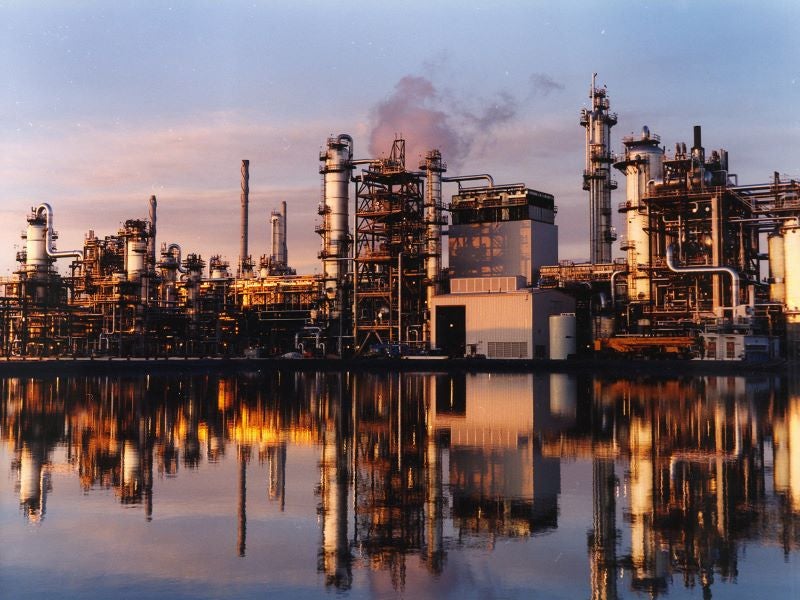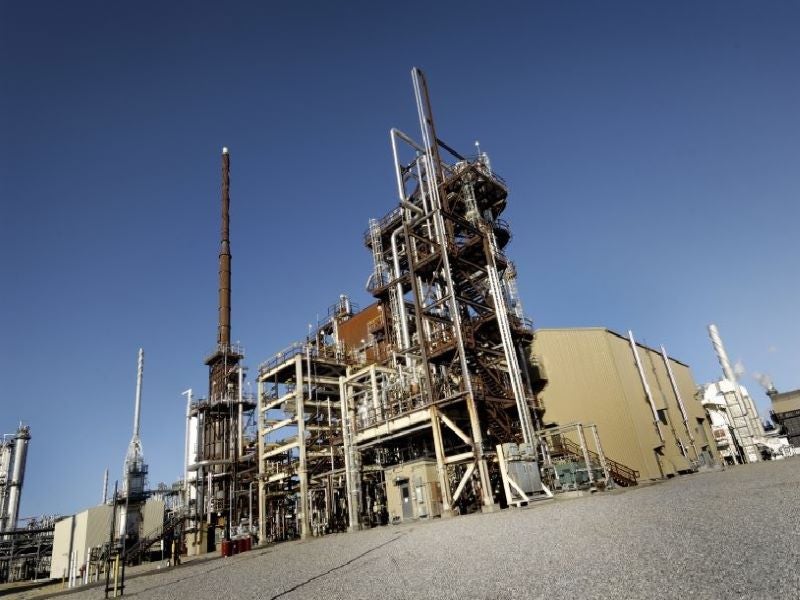The Scotford refinery and petrochemical complex located near Edmonton, Alberta, Canada, has been operational since 1984. It can process up to 100,000 barrels per day (bpd) of synthetic crude oil supplied by the onsite bitumen upgrader facility.
Owned and operated by the Anglo-Dutch oil and gas multi-national Shell, the Scotford integrated complex houses a bitumen upgrader, an oil refinery, a chemicals plant, and a carbon capture and storage (CCS) facility, named Quest, that has been operational since 2015.
Shell plans to expand the CCS infrastructure of the Scotford complex, as part of its energy transition strategy to achieve net-zero carbon emissions by 2050. It has proposed to build a large-scale CCS project named Polaris, which can initially capture and store up to 750,000 tonnes per annum (tpa) of carbon dioxide (CO2) from the Scotford refinery and chemicals plant starting from 2025.
Shell also signed a memorandum of understanding (MoU) with Mitsubishi Corporation in September 2021 to construct a low-carbon hydrogen facility near the refinery complex, which will utilise the Polaris CCS project for CO2 storage.
Location and site details
The Shell Scotford refinery and petrochemical complex is spread over 1,700 acres near Fort Saskatchewan, in the northern part of Strathcona County, Edmonton, Alberta, Canada.
Scotford oil refinery details
The Scotford oil refinery has a crude distillation capacity of 100,000bpd and a hydrocracking capacity of 83,000bpd. It produces a range of products including petrol, diesel, jet fuel, benzene, propane, and butane.
The refinery products are primarily supplied to the Western Canada market through pipeline and rail cars, while benzene is used as feedstock by the Scotford chemicals plant to produce styrene monomer.
Shell Scotford chemicals plant details
The Scotford chemicals facility can produce up to 475,000t of styrene monomer and 548,000t of ethylene glycol a year. The other products from the facility include aromatics, lower olefins, and intermediates.
Bitumen upgrader at Shell’s Scotford complex
The bitumen upgrader facility at Shell’s Scotford complex commenced operations in 2003 and was expanded to process up to 300,000bpd of crude bitumen in 2011. It uses hydrogen-addition technology to upgrade bitumen into synthetic crude oil, which is further processed in the nearby refinery.
The Scotford upgrader is owned by the Athabasca Oil Sands Project (AOSP), a joint venture between Canadian Natural Resources (70%), Chevron Canada (20%), and Shell Canada (10%). AOSP’s assets include the Albian Sands mining and extraction operations at the Muskeg River and Jackpine mines located north of Fort McMurray, as well as the Scotford upgrader and the Quest CCS facility.
Shell is the operator of both the Scotford upgrader and the Quest CCS project.
Quest carbon capture and storage project at Scotford
The Quest CCS facility, located adjacent to Shell’s refinery and chemicals plant, commenced operations in November 2015.
It has the capacity to capture one million tonnes (Mt) of CO2 a year from the Scotford bitumen upgrader. The captured CO2 is transported through a 65km-long pipeline for storage in a sandstone rock reservoir 2km deep beneath the ground.
The Quest CCS facility captured and stored more than 6Mt of CO2 from the Scotford bitumen upgrader as of July 2021.
Polaris CCS project details
Shell proposed to construct the Polaris CCS project at the Scotford complex in July 2021. The final investment decision (FID) on the project is expected in 2023.
In phase one, the Polaris CCS project will capture up to 750,000t CO2 a year from the Shell Scotford refinery and chemicals plant, which will be transported through a 12km pipeline to storage wells located near Josephburg, Alberta.
The Polaris CCS project will eventually become a major CO2 storage hub in Alberta that will be capable of storing more than 10Mt of CO2 a year from Shell’s own facilities as well as third-party industry sources. The project is intended to capture and store up to 300Mt of CO2 over its operational life.
Low-carbon hydrogen production facility at Scotford
As per the MoU signed in September 2021, Mitsubishi Corporation agreed to construct and operate a hydrogen production facility near the Scotford complex.
The facility will use natural gas as feedstock and steam methane reforming technology to produce hydrogen, while the proposed Polaris CCS project will provide CO2 storage for the facility.
The project aims to produce approximately 165,000t of low-carbon hydrogen a year in phase one, which will be converted into ammonia for export to the Japanese market.
Contractors involved
Jacobs Engineering Group, a technical professional services firm based in the US, bagged a five-year contract extension from Shell Canada to provide mechanical maintenance and turnaround services for the Scotford refinery and petrochemical complex in February 2018.





